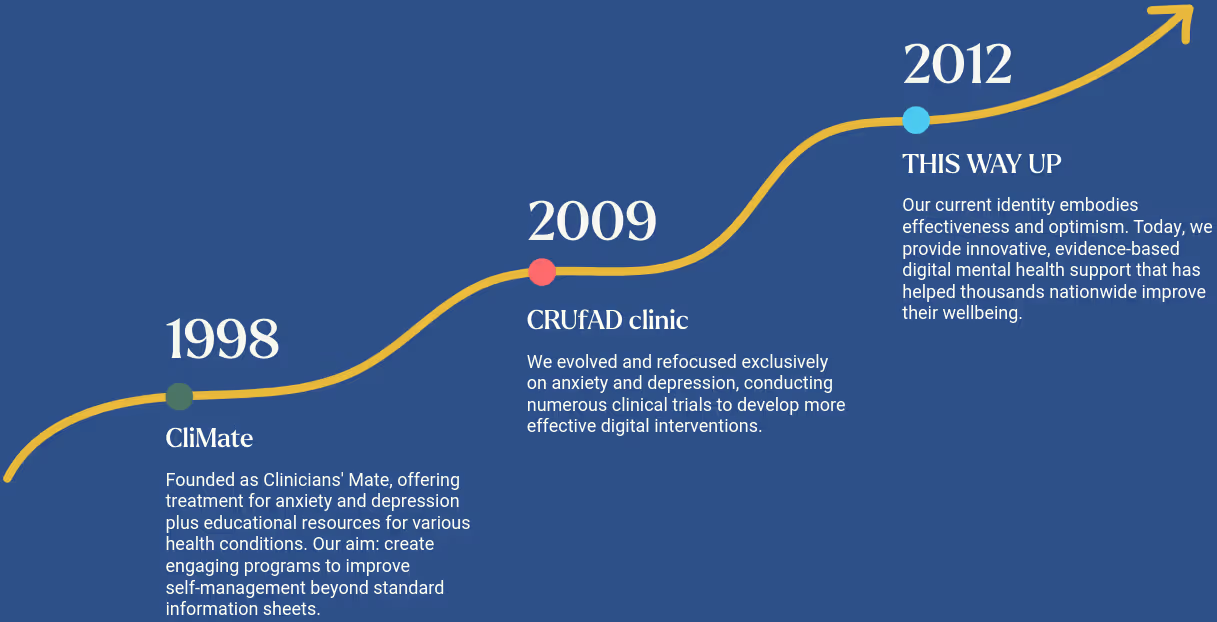Depression Explained
What is depression?
It is normal to experience feelings of sadness and despair in response to life events such as loss, major life changes, stress, or disappointment. In most cases, the sad feelings resolve as you come to terms with the changes in your life. In situations such as loss, these feelings may persist for months and return at significant times, such as birthdays and anniversaries related to the lost loved one. However, if you have times when you can enjoy things, this sadness is not a sign of depression.
Depression is a disorder that is characterised by excessive sadness, loss of interest in enjoyable things, and low motivation.
Depression is common. One in three people will experience an episode of major depression at some stage in their lives. While most cases of depression are mild, about one in ten people will have a moderate or severe episode.
What are the signs of depression?
Physical Symptoms
- Item A
- Item B
- Item C
Psychological Symptoms
- Item A
- Item B
- Item C
What are the signs of depression?
Physical Symptoms
- Item A
- Item B
- Item C
Physical Symptoms
- Item A
- Item B
- Item C
Psychological Symptoms
- Item A
- Item B
- Item C

Not sure whether to seek help?
If you’re unsure about the way you feel, take our anonymous online assessment to check whether your levels of stress, anxiety, or depression are within a healthy range, and see if one of our online programs could help.
What causes depression?
No one knows exactly what causes depression. Genetic factors are important in many cases of depression, where depression seems to run in families (as do other mood disorders), and about 30% of the vulnerability for depression is due to genetic influences.
Stressful life events also play a part in depression. Ongoing conflicts with others can take their toll on our wellbeing, as can other social and environmental stressors such as financial difficulties, retirement, unemployment, childbirth, loneliness, or loss of someone or something important. In vulnerable people, these stressful life events may be enough to cause or worsen depression.
Personality style is another important factor. When people are depressed, they usually have a very negative view of themselves and the world. They do not appreciate good things, and bad things seem overwhelming. Some people have a tendency to view themselves and the world this way even when they are not depressed. In other words, they may have a depressive personality style.
Other possible causes of depression that should not be overlooked is physical illness or medications. Glandular fever, influenza, hepatitis, thyroid hormones, anaemia, diabetes, birth control pills, alcohol and substances of abuse, or certain medications such as those for heart or blood pressure conditions, may all cause symptoms of depression.
How can I deal with depression?
There are a range of ways to deal with depression, and often they are best used in conjunction with each other. The top medical options are Cognitive Behavioural Therapy (CBT), antidepressant medication, and in some severe cases, Electroconvulsive Therapy (ECT). Psychoeducation is also important when learning to manage your depression. Take a look below to find out more about each option:
Psychoeducation
Default Rich Text Content
This is the default rich text value
Our Research About Depression
Default Rich Text Content
This is the default rich text value
Our Research About Anxiety Disorders
Our Research About GAD
Our Research About Panic
Our Research About Social Phobia
Our Research About OCD

How can Cognitive Behavioural Therapy (CBT) help with depression?
Cognitive Behavioural Therapy or CBT is one of the most effective psychological treatments for depression. CBT uses cognitive and behavioural strategies to help target the thoughts, feelings and behaviours associated with depression. All of our online programs use CBT strategies. Click below to see if our online CBT program can help you tackle your depression to improve the way you feel.
How can I cope with the individual symptoms of depression?
The symptoms of depression can be addressed to help you feel better. Here are some ways to deal with some individual symptoms:
Psychoeducation
Default Rich Text Content
This is the default rich text value
Our Research About Depression
Default Rich Text Content
This is the default rich text value
Our Research About Anxiety Disorders
Our Research About GAD
Our Research About Panic
Our Research About Social Phobia
Our Research About OCD



